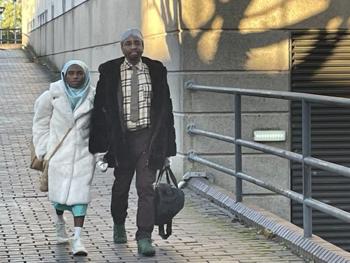How Failures in Child Safeguarding Led to the Death of a Starved Toddler in Birmingham
A Heartbreaking Discovery
In the heart of Birmingham, the tragic story of a young child, Abiyah Yasharahyalah, has come to light following a thorough review of his untimely death. Abiyah, only three years old, died in early 2020 after suffering from severe malnourishment and illness that were hidden behind a veil of neglect and cultural isolation. His death has sparked a deep reflection on the shortcomings of child protection services and the challenges faced when cultural beliefs and parenting practices intersect with child welfare.
The Child’s Dire Condition and Cause of Death
Abiyah’s cause of death was a respiratory illness that was aggravated by severe malnutrition. At the time of his passing, he was found to be suffering from multiple health issues, including anemia, rickets, and stunted growth—conditions often linked to a lack of essential nutrients. The child’s diet at home was heavily restricted to a vegan lifestyle, which, when combined with the neglect he faced, severely compromised his health. This restrictive diet without proper nutritional balance played a significant role in weakening his body and immune system.
A Family Hidden Away from View
Despite Abiyah’s fragile state, a local safeguarding review revealed that he and his family remained largely invisible to child protection agencies. The family, living in the Handsworth area of Birmingham, were only sporadically visited by professionals, and when visits did occur, they were brief and insufficient. Abiyah was seen by a very limited number of professionals throughout his life, and no thorough assessments were made to understand how the family’s lifestyle and cultural beliefs might be affecting his wellbeing.
Social workers and police had visited the family home multiple times over the years, including one police visit while Abiyah was still alive, yet records from these visits showed almost no mention of the child’s health or living conditions. This lack of information and follow-up allowed the child’s suffering to continue unnoticed and unaddressed.
Cultural Beliefs and Parental Resistance Impeded Help
The review highlighted a critical issue: professionals lacked a deep understanding of the parents’ belief system and how it shaped their approach to caring for Abiyah. The family followed their own belief and legal system, known as “slick law,” which drew from Igbo cultural practices. This system, combined with their rejection of external authorities, made it difficult for child services to intervene effectively.
The parents’ behaviour often distracted professionals or led to a dismissal of concerns. Their resistance to advice, support, and intervention created barriers that ultimately caused Abiyah to become “invisible” to those meant to protect him. The family openly shunned societal norms and authorities, going so far as to post signs on their door warning government and non-government bodies against making contact.
The Final Tragedy and Legal Consequences
Following Abiyah’s death, his parents engaged in an eight-day ritual hoping to bring their son back to life. After this, they buried his body in their garden. The child’s remains were left in the garden even after the family was evicted from the house in 2022.
Tai and Naiyahmi Yasharahyalah were later found living in a shipping container in Somerset when they were arrested. They faced multiple charges, including child cruelty, causing or allowing the death of a child, and attempting to pervert the course of justice. Both received lengthy prison sentences for their roles in this devastating case.
Reflections on Child Safeguarding and Cultural Sensitivity
The review panel chair emphasized the urgent need for professionals to understand children’s lives beyond the surface and not be distracted by parental behaviour or beliefs. It is critical to respect cultural and religious backgrounds, but safeguarding children must always remain the highest priority.
The report serves as a sobering reminder of the importance of persistent, thorough child welfare investigations and a balanced approach that respects culture while safeguarding vulnerable children. It calls for improved training, better understanding of diverse family structures and beliefs, and enhanced collaboration among agencies to prevent tragedies like Abiyah’s from happening again.


COMMENTS (0)
Sign in to join the conversation
LOGIN TO COMMENT